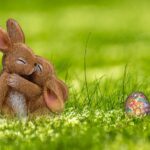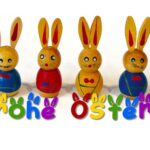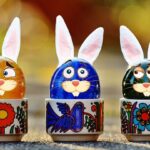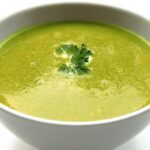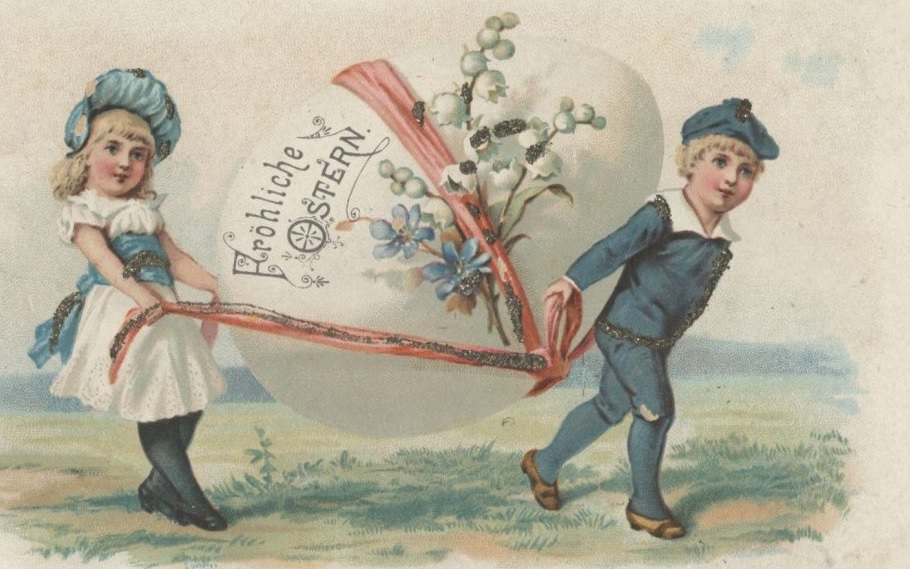
Did you know that the word Easter might have Germanic pagan origins? In Germany, Ostern is a holiday filled with traditions that date back centuries, blending ancient fertility rites, Christian beliefs, and folk customs. From the Easter Bunny (Osterhase) to egg-decorating and bonfires, many modern Easter traditions have deep roots in German history.
But how did Easter in Germany evolve from pre-Christian fertility festivals to the Christian holiday we know today? And what unique customs make it so special? Let’s explore the origins, Christian influences, and time-honored traditions that define Easter in Germany.
The Pagan Origins of Easter in Germany
Long before Christianity arrived, Germanic tribes celebrated spring festivals that honored renewal and the changing seasons. Many historians believe that Easter’s name comes from Eostre (or Ostara), a pagan fertility goddess whose festival was held around the spring equinox.
Who Was Eostre?
- Eostre was a Germanic goddess of fertility and dawn, associated with rebirth and the return of light.
- The hare, now linked to the Easter Bunny, was one of her sacred symbols, representing fertility and abundance.
- Many believe that eggs, a universal symbol of life, were exchanged and used in rituals during her festival.
As Christianity spread, these pagan elements were absorbed into Christian Easter celebrations, blending pre-Christian symbols with Christian themes of resurrection and renewal.
The Christianization of Easter in Germany
By the 4th century, Easter became a central Christian holiday, celebrating the resurrection of Jesus Christ. Many pre-Christian customs, such as eggs, rabbits, and bonfires, remained part of the celebration.
Key Christian traditions that emerged in Germany:
- Easter Sunday (Ostersonntag): A celebration of Christ’s resurrection, marked by church services, feasts, and family gatherings.
- Good Friday (Karfreitag): A solemn day of reflection and fasting, with many regions observing “quiet laws” that restrict public celebrations.
- Easter Vigil (Osternacht): A nighttime church service where candles are lit to symbolize Christ as the light of the world.
Though Easter is a Christian holiday, its rich symbolism still reflects its pre-Christian past.
Traditional German Easter Customs
The Easter Bunny (Osterhase): A German Invention
If you’ve ever hunted for Easter eggs, you have Germany to thank. The first recorded mention of the Osterhase (Easter Bunny) dates back to the 17th century in the Palatinate region of Germany.
- The Easter Bunny was believed to lay colorful eggs in the gardens of well-behaved children.
- This tradition was brought to America by German immigrants, eventually evolving into the modern Easter Bunny.
Easter Eggs (Ostereier) & Egg Decorating
Eggs have long symbolized fertility and renewal. In Germany, decorating eggs is one of the most beloved Easter traditions.
- Hand-painted eggs feature intricate designs using natural dyes, wax techniques, and folk patterns.
- Ostereierbaum (Easter Tree): Trees and bushes are decorated with colorful eggs, creating a vibrant spring display.
- Egg battles (Eierpecken): A fun game where players tap boiled eggs together to see whose egg stays unbroken the longest.
Easter Fires (Osterfeuer): A Pagan Tradition Lives On
Easter bonfires, or Osterfeuer, are a tradition that predates Christianity. These fires are lit to symbolize the triumph of light over darkness and to welcome spring.
- Popular in Northern Germany, towns and villages gather on Holy Saturday to light massive bonfires.
- Many believe these fires bring good luck and ensure a prosperous harvest.
- Today, Osterfeuer has become a community event, complete with food, music, and celebrations.
Easter Markets (Ostermärkte)
Just like Germany’s famous Christmas markets, many towns host Easter markets, featuring:
- Handcrafted decorations such as painted eggs, Easter figurines, and floral wreaths.
- Traditional Easter treats, including chocolate bunnies, marzipan eggs, and sweet Easter bread.
- Live music and folk performances.
Some of the best Easter markets can be found in Berlin, Nuremberg, and Stuttgart.
Easter Foods & Feasts
No German holiday is complete without traditional food, and Easter is no exception. Popular Easter specialties include:
- Osterlamm (Easter Lamb Cake): A lamb-shaped sponge cake dusted with powdered sugar.
- Osterbrot (Easter Bread): A sweet, fruit-filled loaf, often braided and topped with almonds.
- Roast Lamb (Oster Lammbraten): Traditionally served on Easter Sunday, symbolizing Jesus as the Lamb of God.
- Egg-based dishes: Many Easter meals feature boiled, scrambled, or deviled eggs, honoring the theme of renewal.
Modern-Day Easter in Germany
Easter in Germany today blends centuries-old traditions with modern celebrations. Families enjoy:
- Easter egg hunts (Ostereiersuche): Children search for hidden eggs and chocolate treats.
- Easter hiking trips (Osterwanderung): A popular outdoor tradition to welcome spring.
- Public holidays & travel: Easter weekend is a prime time for Germans to visit family or take countryside trips.
The history of Easter in Germany is a fascinating mix of pagan fertility rituals, Christian beliefs, and folk traditions. From the Easter Bunny and bonfires to beautifully decorated eggs and festive feasts, Germany’s Easter customs continue to bring joy and meaning to the season.
Whether you’re visiting an Easter market, lighting an Osterfeuer, or enjoying a slice of Osterlamm cake, Easter in Germany is a celebration of renewal, family, and tradition.
Want to Learn More About German Traditions?
Explore related articles to dive deeper into German Easter customs:



